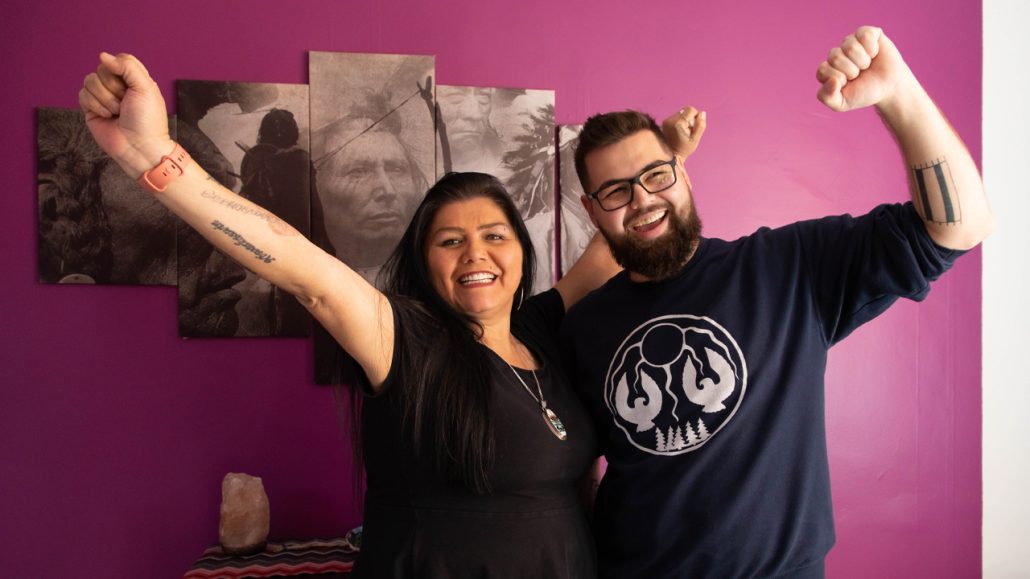
We accomplished so much in 2022 — all thanks to the hard work, generosity and commitment of our community
As we near the end of 2022, we wanted to take a moment to look back at everything United Way Greater Toronto accomplished this year. In a time of immense challenges, we were able to take real, sustainable and significant steps towards alleviating poverty for our friends and neighbours across Peel, Toronto and York Region. None of this would be possible without the combined efforts of our many partners, our donors and the frontline organizations we work with each and every day. It’s truly remarkable what we can accomplish when we work together, in a united way.
In no particular order, here are 10 of our proudest moments from 2022:
Embedding equity into grants and opportunities
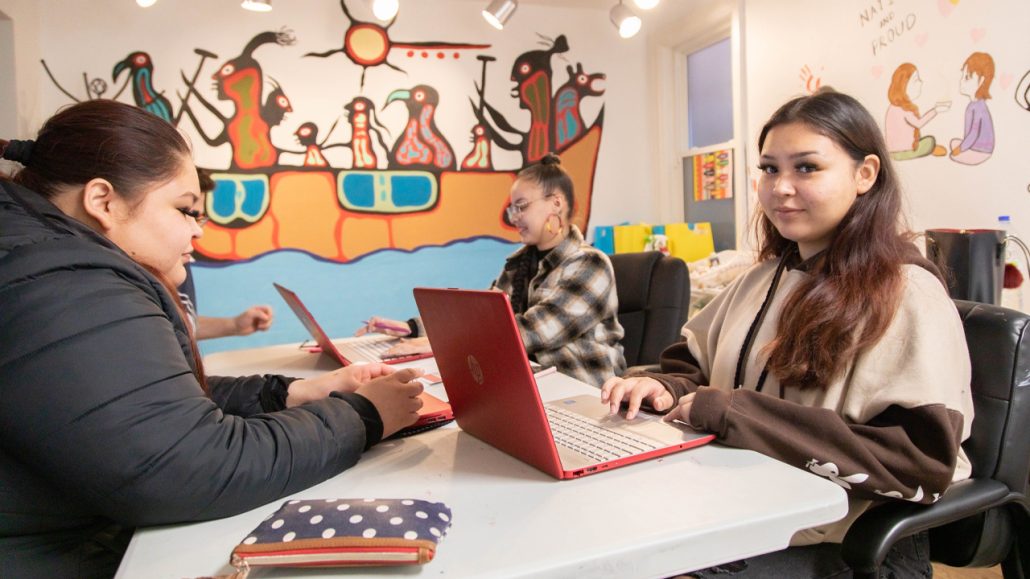
We strengthened our investments in organizations led by, for and about Indigenous, Black and other equity-deserving communities, and into neighbourhoods most impacted by poverty. Our Community Program grants invested $26 million into 297 programs, reaching 75 new or expanded programs and 43 new organizations. In addition, we launched our first Black-focused Employment Social Enterprise Idea Accelerator, developed through stakeholder consultations, and supporting 27 participants through next steps. Consultations also continued with the Indigenous Partnership Council to understand needs around supporting cultural rebuilding and culture-centered trauma practices; the need for two-spirit supports; and the significant infrastructure and coordination gaps in York and Peel.
ILEO creating opportunities in Scarborough

The Inclusive Local Economic Opportunity (ILEO) initiative supports Scarborough’s Golden Mile residents through five pilot projects. Through the Storefront Starter Golden Mile, 12 entrepreneurs received training, business model and product testing, and grants that helped build their businesses and to showcase their wares at a summer community marketplace and a winter holiday market. Other ILEO projects include local jobs training, a community-owned construction company to fulfill needs from the Eglinton Crosstown LRT expansion, and a purchasing initiative focused on supporting small and medium-sized businesses in the neighbourhood. ILEO is a novel example of a cross-sector collaboration that can truly transform neighbourhoods and build lasting community opportunity.
Advocating for a better GTA
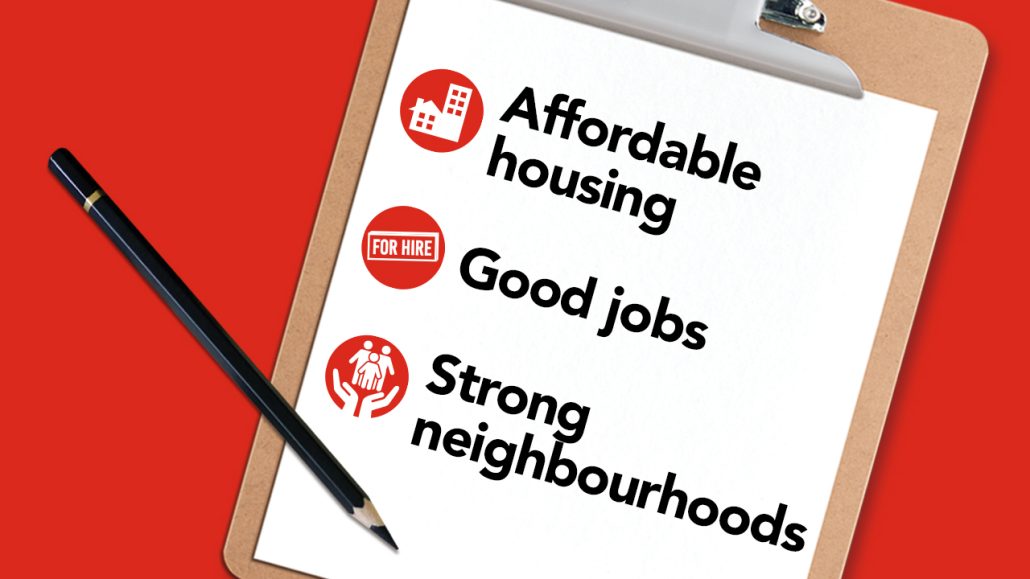
United Way publicly advocated for policies to improve conditions for low-income households in four key areas: housing security; income security and inclusive employment; strong neighbourhoods; and a strong social services sector. Included in these efforts were op-eds calling for support for the social services sector; joint open letters outlining action needed on housing and homelessness; a municipal checklist reminding residents to ask candidates about their stances on the issues most impacting low-income residents; and participation on numerous panels, including one hosted by Toronto Metropolitan University on what municipal leaders need to do to create a city for all
Learning from crisis
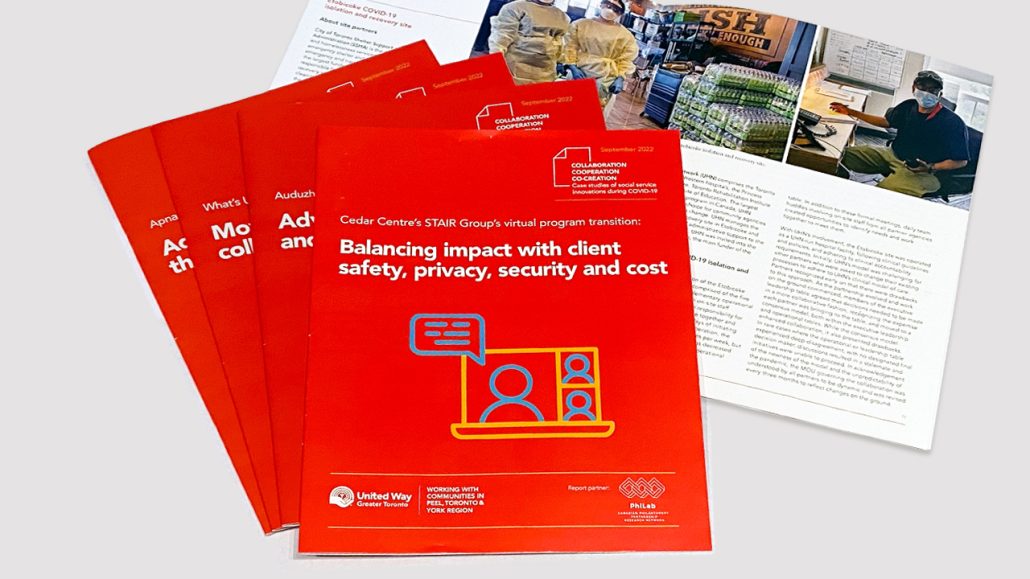
During the pandemic, our network of community service agencies and partners mobilized quickly to meet urgent and evolving needs, often having to problem solve in real time. The learnings from this period are invaluable, which is why United Way catalogued the most promising approaches in a series of five case studies developed in partnership with PhiLab. Learnings like the importance of flexible funding to allow agencies to respond to the day’s greatest needs, and the power that cross-sector networks can have when they’re grounded in trust and openness. The lessons outlined in the case studies will help us create conditions for innovation in the sector moving forward.
Addressing homelessness in York Region
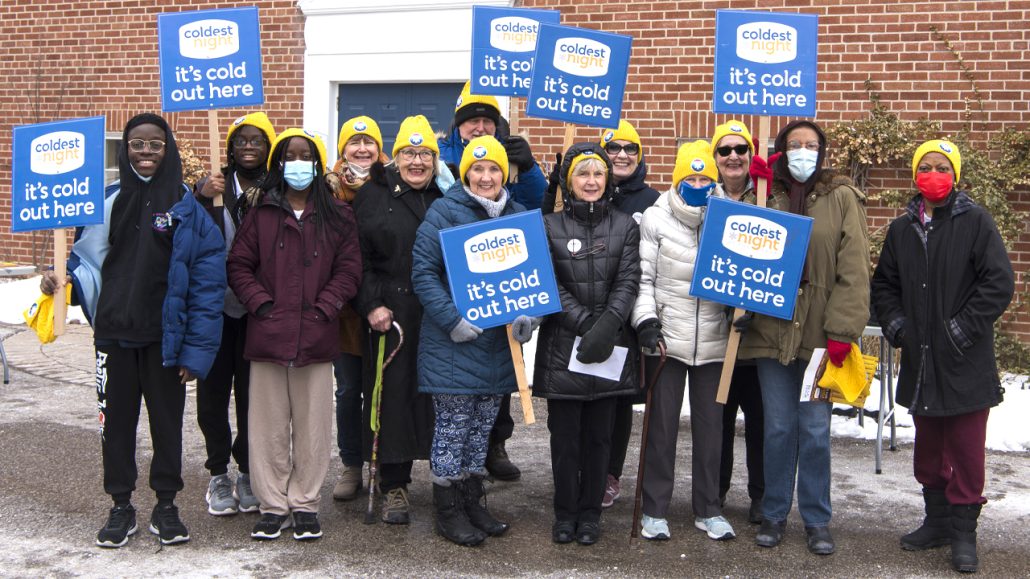
With the support of the federal government’s Reaching Home funds, we partnered with community organizations and York Region to develop 38 units of permanent and transitional housing to help residents find or maintain housing, in addition to providing and improving other services for those residents. In addition to this work, we also partnered with the municipality on the I Count report, which outlines factors exacerbating the crisis, and shows that Indigenous, Black and 2SLGBTQ+ residents continue to be disproportionately unhoused. The report also includes tangible recommendations to reduce homelessness in York Region.
Leading on social justice
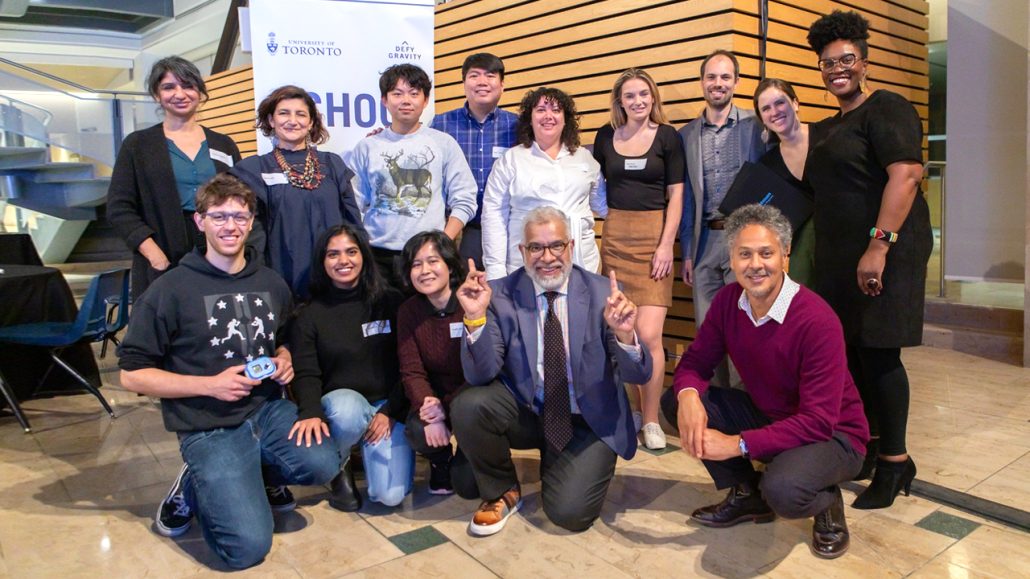
The Leading Social Justice Fellowship entered its second year in 2022, inviting 18 teams to address longstanding, interconnected social, health, housing and climate justice issues. This diverse group of fellows from across the public, private and community sectors developed innovative projects, including a research project that uses race-based data to help address disparities in Black maternal health outcomes and an initiative that transforms public spaces using traditional artistic Islamic motifs to foster belonging. We can’t wait to see what the graduates of this program do next and look forward to working with them in the future.
Bringing food security to the table
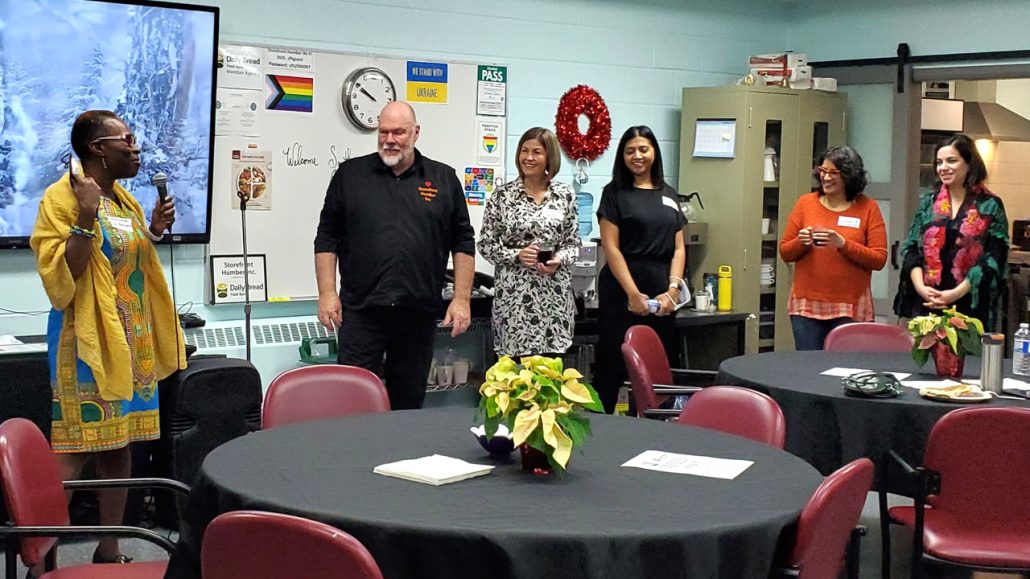
Our 17 Community Coordination Tables, made up of local government and more than 375 community organizations, continue to be an invaluable tool in addressing new and evolving challenges. A recent Toronto Metropolitan University (TMU) report showed that these tables were an essential part of fighting food insecurity during the first few years of the pandemic, providing a space to create partnerships, reducing organizational silos and increasing communication. The tables continued to play this important role during 2022, helping us respond to Omicron in the first few months of the year and then continuing to support food access as inflation led to skyrocketing prices. The TMU report recommends continuing this collaborative approach post-pandemic — and we agree that this coordinated, innovative approach to meeting community need is here to stay.
A strategic and holistic approach to housing
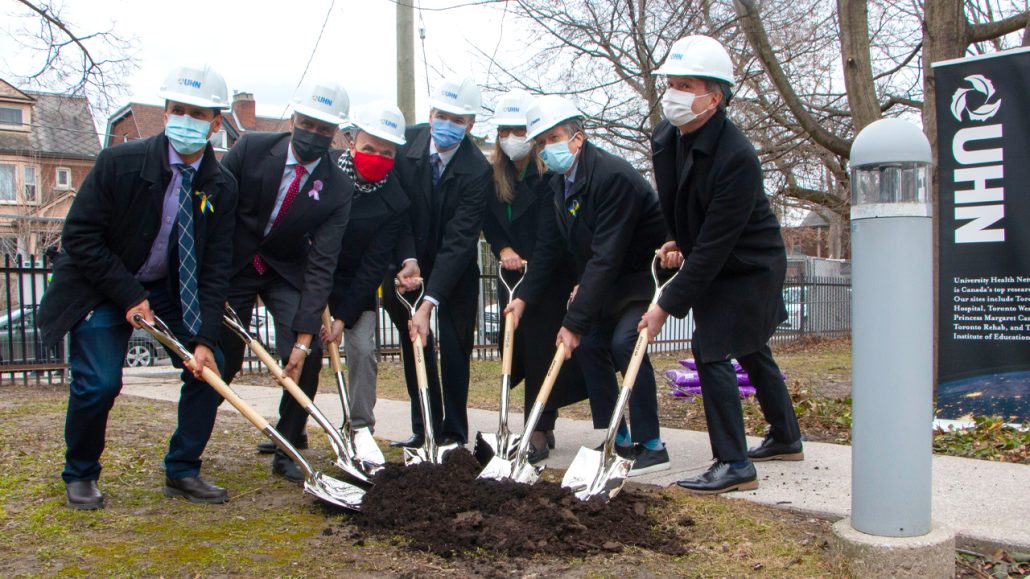
After breaking ground in March, construction is now underway on 51 new modular, supportive homes in Toronto’s Parkdale neighbourhood. This Social Medicine Initiative, in partnership with the City of Toronto and University Health Network, will support unhoused individuals with complex health needs. The permanent, deeply affordable housing will streamline access to healthcare, food, transportation, good jobs, social engagement, and life skills development. It will also incorporate health and social supports like harm reduction, access to nursing and primary care, and easy access to community agencies and peer workers. We leveraged community expertise, lived experience and the research and advocacy of a host of United Way partners, from PARC to West Neighbourhood House to the resident-led Parkdale People’s Economy for this initiative.
Support for refugees and newcomers

In partnership with the City of Toronto, our Afghan Resettlement Fund distributed almost $400,000 to 16 organizations helping to resettle Afghan refugees, assisting with housing, employment, translation and other critical services. Our network of agencies also provided resources and services for incoming Ukrainian and other newcomers. Alongside this frontline work, we support systems-level responses to challenges faced by newcomers, leading the Peel Newcomer Strategy Group and co-chairing Toronto’s Newcomer Leadership Table, where government, school boards, hospitals and community agencies come together. For decades, our investments and leadership around services and solutions for newcomers have helped families access what they need to make the GTA home.
Proud to be a Top Employer

For the 11th year, United Way has been recognized as one of Greater Toronto’s Top 100 Employers, and now also as an Ontario Living Wage Employer. Plans are underway to encourage contractors we work with regularly to pay their employees a living wage. It is important to model corporate responsibility and push for social change, and this begins with our own organization.